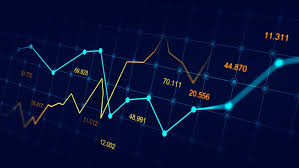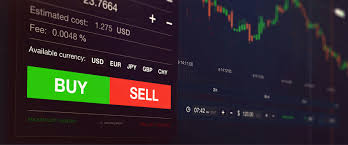
In the world of currency trading, knowledge is power. For anyone looking to hone their skills or understand forex trading better, there is a plethora of resources available. Among these, forex trading books stand out as indispensable tools for both novices and experienced traders alike. Whether you’re just starting out or looking to refine your strategies, this guide will explore some of the most valuable forex trading books available today. Additionally, for those wishing to open a trading account, check out forex trading books Global Forex Brokers for reliable broker options.
Why Read Forex Trading Books?
Reading forex trading books offers numerous advantages. Firstly, they provide foundational knowledge about forex markets, currency pairs, technical analysis, fundamental analysis, and risk management. While online courses and tutorials can be beneficial, books often offer comprehensive insights that are meticulously structured, which can be especially useful for learners who prefer a more traditional method of education.
Moreover, many esteemed traders share their experiences and strategies through their own narratives, allowing readers to learn from real-world scenarios. This blend of theoretical knowledge and practical insights makes forex trading books a valuable addition to any trader’s library.
Key Categories of Forex Trading Books
Forex trading literature can be categorized into several key areas:
- Beginner Guides: Perfect for newcomers eager to understand the basics.
- Technical Analysis: Focused on charting and indicators to anticipate market movements.
- Fundamental Analysis: Explains economic indicators and how they affect currency values.
- Trading Psychology: Insights on the mental aspects of trading.
- Advanced Strategies: Books that delve into sophisticated trading techniques.

Top Forex Trading Books
1. “Currency Trading for Dummies” by Kathleen Brooks and Brian Dolan
This entry-level guide simplifies the complexities of forex trading. It covers fundamental concepts, trading strategies, and even discusses the emotional side of trading. This book is a must-have for those who prefer a straightforward approach to learning the forex market.
2. “Trading in the Zone” by Mark Douglas
This book focuses on trading psychology, emphasizing the mental discipline needed to be a successful trader. Douglas teaches readers to adopt a mindset that allows them to trade effectively within the changing market environment. The book is known for its insights into overcoming self-doubt and emotional challenges.

3. “Technical Analysis of the Financial Markets” by John J. Murphy
Considered a classic in the world of technical analysis, Murphy’s book outlines various charting methods and indicators. It’s a comprehensive guide on how to interpret data and can be valuable for those wanting to dive deeper into technical aspects of forex trading.
4. “The New Trading for a Living” by Dr. Alexander Elder
In this revised edition of his earlier work, Elder discusses not just trading strategies but also the psychology behind trading. His three pillars—trading systems, risk management, and psychology—are explored in-depth, making this a holistic read for anyone serious about trading.
5. “Forex For Beginners” by Anna Coulling
This book is ideal for beginners and provides a clear overview of how the forex market functions. Coulling offers practical advice and tips for starting off in the forex landscape, ensuring that newbies can hit the ground running.
Exploring Advanced Trading Books
1. “The Complete Guide to Currency Trading & Investing” by A. W. Jones
This book serves as an encyclopedia of forex trading, guiding readers through advanced strategies and comprehensive psychology approaches. It’s perfect for traders who want to deepen their understanding and apply sophisticated techniques to their trading.
2. “Flash Boys” by Michael Lewis
While not a traditional forex book, “Flash Boys” offers insights into the high-speed trading world, including forex. It highlights how technology influences trading and provides a critical look at the financial markets’ practices, making it a captivating read for traders interested in market dynamics.
Digital vs. Print: Which Should You Choose?
In today’s digital age, many traders wonder whether to stick with traditional print books or venture into digital formats. Both have advantages. Print books are tangible and can be annotated, whereas eBooks are portable and accessible on various devices. Ultimately, the choice depends on personal preference. Having a mix of both can be effective, allowing flexibility and access to a wide range of materials.
Final Thoughts on Forex Trading Books
Whether you’re a beginner or a seasoned trader, investing time in reading forex trading books can profoundly impact your understanding and approach to the market. They provide crucial insights that myriad online resources may not cover in depth. By learning from the experiences and knowledge of established traders and experts, you can develop your unique trading strategy, improve risk management, and enhance your trading psychology.
As you continue your journey in forex trading, consider regularly updating your library with the latest publications to stay ahead of market trends and practices. Happy trading!
